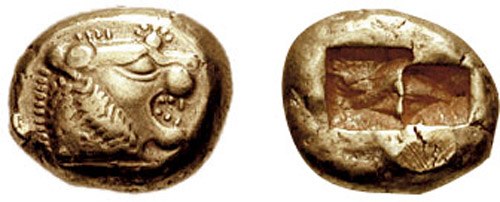Moneynoun
A legally or socially binding conceptual contract of entitlement to wealth, void of intrinsic value, payable for all debts and taxes, and regulated in supply.
Moneynoun
A generally accepted means of exchange and measure of value.
Moneynoun
A currency maintained by a state or other entity which can guarantee its value (such as a monetary union).
Moneynoun
Hard cash in the form of banknotes and coins, as opposed to cheques/checks, credit cards, or credit more generally.
Moneynoun
The total value of liquid assets available for an individual or other economic unit, such as cash and bank deposits.
Moneynoun
Wealth; a person, family or class that possesses wealth
Moneynoun
An item of value between two or more parties used for the exchange of goods or services.
Moneynoun
A person who funds an operation.
Moneynoun
A piece of metal, as gold, silver, copper, etc., coined, or stamped, and issued by the sovereign authority as a medium of exchange in financial transactions between citizens and with government; also, any number of such pieces; coin.
Moneynoun
Any written or stamped promise, certificate, or order, as a government note, a bank note, a certificate of deposit, etc., which is payable in standard coined money and is lawfully current in lieu of it; in a comprehensive sense, any currency usually and lawfully employed in buying and selling.
Moneynoun
Any article used as a medium of payment in financial transactions, such as checks drawn on checking accounts.
Moneynoun
Any form of wealth which affects a person's propensity to spend, such as checking accounts or time deposits in banks, credit accounts, letters of credit, etc. Various aggregates of money in different forms are given different names, such as M-1, the total sum of all currency in circulation plus all money in demand deposit accounts (checking accounts).
Moneynoun
In general, wealth; property; as, he has much money in land, or in stocks; to make, or lose, money.
Moneyverb
To supply with money.
Moneynoun
the most common medium of exchange; functions as legal tender;
Moneynoun
wealth reckoned in terms of money;
Moneynoun
the official currency issued by a government or national bank;
Money
Money is any item or verifiable record that is generally accepted as payment for goods and services and repayment of debts, such as taxes, in a particular country or socio-economic context. The main functions of money are distinguished as: a medium of exchange, a unit of account, a store of value and sometimes, a standard of deferred payment.
Cashnoun
Money in the form of notes/bills and coins, as opposed to cheques/checks or electronic transactions.
Cashnoun
(informal) Money.
Cashnoun
(Canada) Cash register.
Cashnoun
(archaic) A place where money is kept, or where it is deposited and paid out; a money box.
Cashnoun
Any of several low-denomination coins of India, China, or Vietnam, especially the Chinese copper coin.
Cashverb
(transitive) To exchange (a check/cheque) for money in the form of notes/bills.
Cashverb
(poker slang) To obtain a payout from a tournament.
Cashverb
To disband.
Cashnoun
A place where money is kept, or where it is deposited and paid out; a money box.
Cashnoun
Ready money; especially, coin or specie; but also applied to bank notes, drafts, bonds, or any paper easily convertible into money
Cashverb
To pay, or to receive, cash for; to exchange for money; as, cash a note or an order.
Cashverb
To disband.
Cash
A Chinese coin.
Cashnoun
money in the form of bills or coins
Cashnoun
prompt payment for goods or services in currency or by check
Cashverb
exchange for cash;
Cash
In economics, cash ( (listen) kash, or kaysh in AuE) is money in the physical form of currency, such as banknotes and coins. In bookkeeping and financial accounting, cash is current assets comprising currency or currency equivalents that can be accessed immediately or near-immediately (as in the case of money market accounts).
















